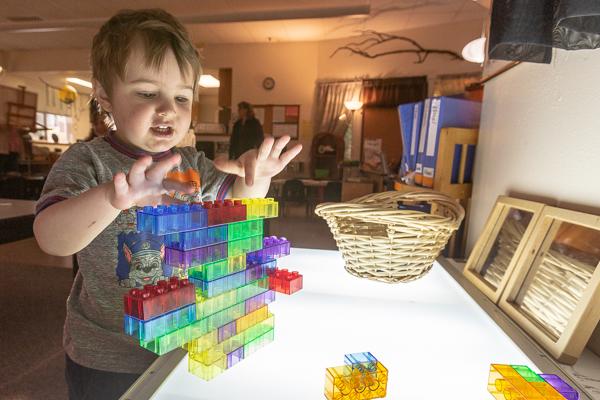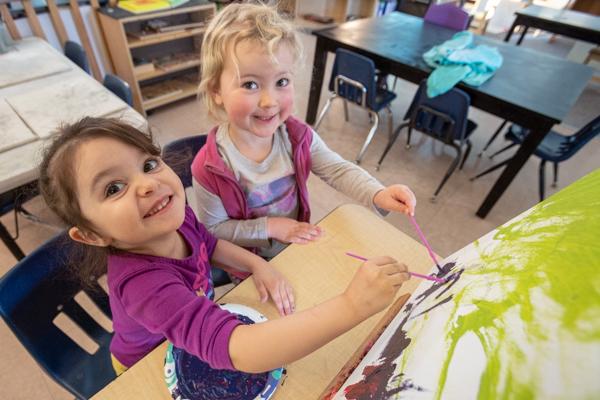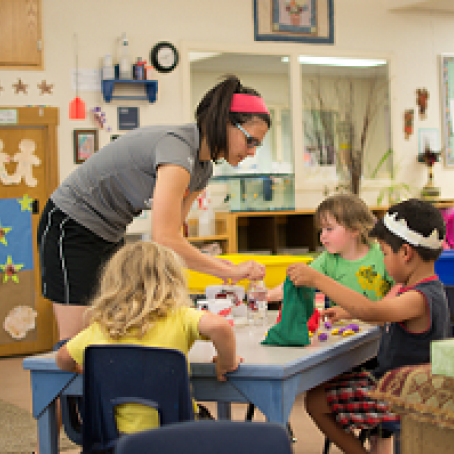Philosophy
The Lane Child and Family Center is inspired by the Reggio Emilia approach to education that was developed in the 1940s after World War II. Loris Malaguzzi, a philosopher and educational innovator, helped local families from the northern Italian city of Reggio Emilia, to create new schools which reflected their community based values. Inspired by renowned early childhood psychologist and philosophers Dewey, Piaget, and Vygotsky, the Reggio Emilia Approach is built upon a foundation of connected principles, and is known worldwide for its innovative and child-centered philosophy of teaching and learning.
The philosophy of our program is to encourage and support the optimal development of each child. Our program values diversity and inclusion of children and adults with varying skill levels and abilities. All children have the right to be included as equal members of the classroom community. Adaptations and activities of varying skill levels build skills and enhance children’s success. Children continuously construct knowledge through play.
Our program provides a play- based emergent curriculum emphasizing exploration and discovery. Emergent curriculum allows learning activities to evolve from the interests of the children, parents, teachers, and the Early Childhood Education (ECE) practicum students working in the classroom. Both adults and children have initiative and make decisions. The power to impact curriculum means teachers negotiate between what interests the children and what is necessary for their education and development. Emergent curriculum offers an engaging way for children to learn through playing, doing, and self-directing.
In all aspects of program planning, the priority is for each child to develop a positive self-image. We believe that all areas of development must be considered, planned for, and represented in the classroom. This process is facilitated through the teachers observing and documenting the rich and varied interests of the children.We strive to promote and implement a strong learning foundation for the children, their families and all students in the Early Childhood Education community.
"Curriculum is everything that happens in school or child care." (Claudia Eliason, 2008.)
Curriculum
The following guiding principles are inspirations from the Reggio Emilia approach that we have adapted in our school culture:
The image of the child: Every child is capable and full of potential. Every child is an active participant in the learning process. Children can construct their own knowledge by exploring their world and creating meaning. Each child is a valued member of the community. We come together as a group to greet, eat, share, collaborate, listen and reflect every day.
The hundred languages of children: Children use multiple languages and materials to express their thoughts. They naturally engage in learning in many ways: art, movement, music, building, writing, science, dramatic play, and more! They test theories and make connections with their environment every day.
The role of the teacher: The teacher is a partner that engages in daily discoveries. They are facilitators and researchers and participate in the process and support independent thinking.
The role of the family: parents and family members are valued members in our school’s culture. Parents are the ‘first teacher’. Having parent involvement enriches the child’s experience. Parents are partners in the learning process.
The environment as the third teacher: Our classrooms are aesthetic, thoughtful, welcoming and engaging. The varying materials promote curiosity and open-ended experiences. The environment encourages investigations. Exploration leads to communication that fosters new ideas and new friendships. Our “classroom” includes the whole campus. Children are passionate about learning and their interests guide our curriculum.


